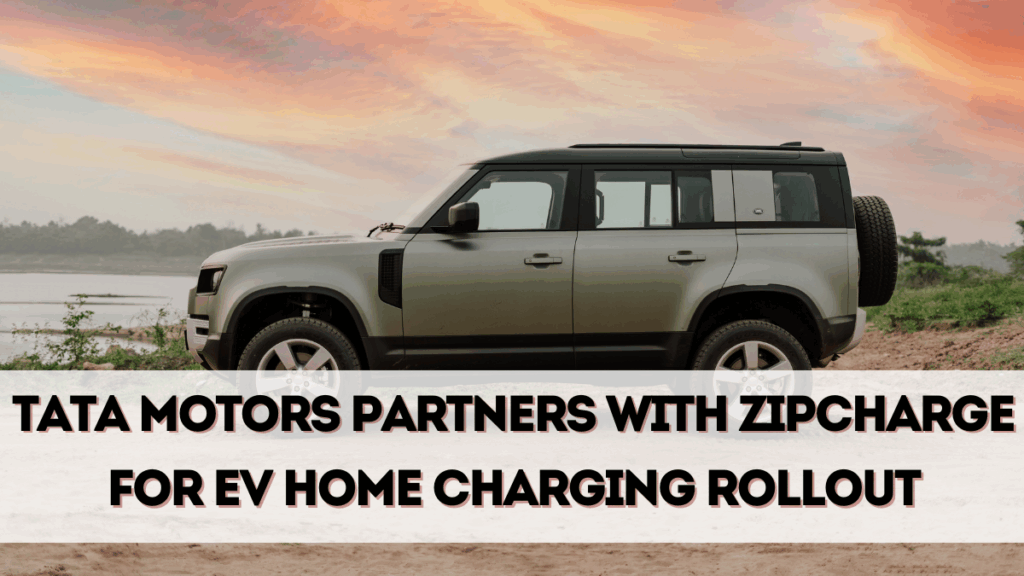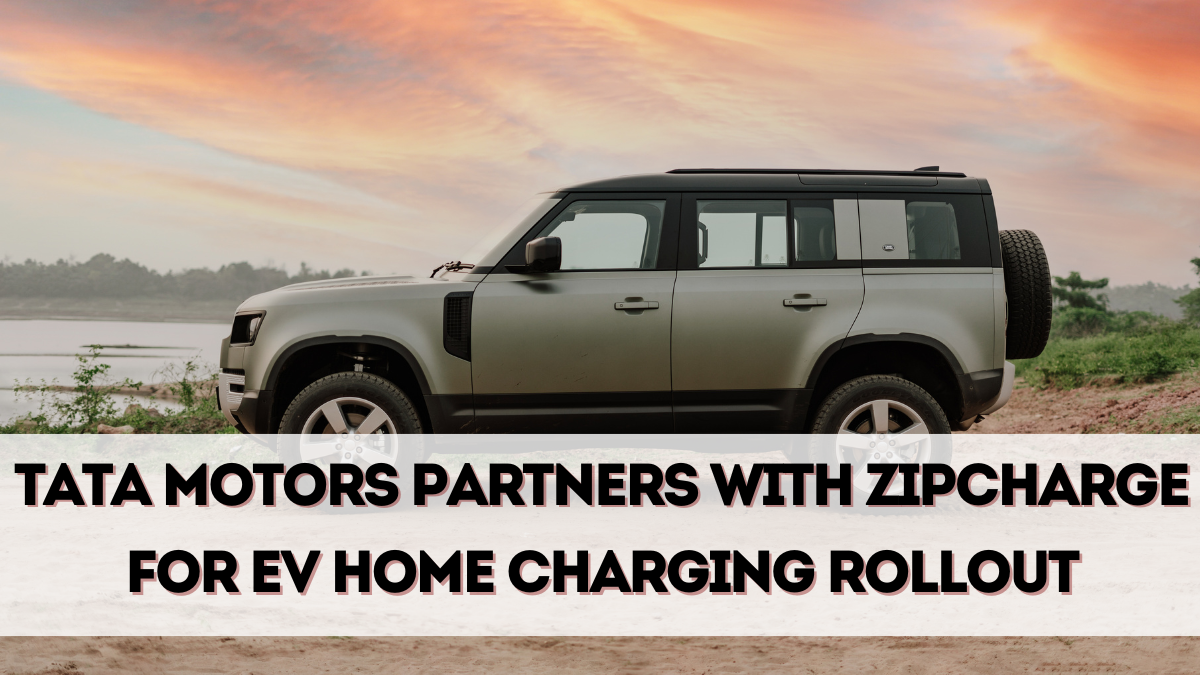Tata Motors, India’s leading electric vehicle manufacturer, has announced a strategic partnership with ZipCharge to create a home EV charging network across India.
The rollout begins in September 2025, with the aim of making EV ownership more convenient and affordable.

Why the Partnership Matters
One of the biggest challenges for EV adoption in India has been the lack of reliable charging infrastructure.
While public charging stations are growing, many buyers prefer the convenience of charging at home.
This partnership with ZipCharge will provide portable and smart charging solutions, giving Tata EV owners greater flexibility.
Key Features of the Charging Network
The Tata Motors EV charging network will come with several unique features.
-
Portable Chargers: Compact units that can be carried and used anywhere.
-
Smart Charging App: Mobile-based monitoring and scheduling for convenience.
-
Fast Charging Capability: Reduced charging time compared to regular home sockets.
-
Affordable Subscription Plans: Monthly plans to reduce upfront costs for buyers.
These features are designed to make charging as simple as charging a smartphone.
Availability Timeline
The rollout will begin in major metro cities such as Delhi, Mumbai, Bengaluru, and Pune from September 2025.
By early 2026, Tata aims to expand the network to Tier-2 and Tier-3 cities.
This staged expansion ensures that urban and semi-urban buyers both gain access to reliable charging.
Benefits for Tata EV Buyers
The partnership directly benefits new and existing Tata EV customers.
-
Convenience: No need to depend solely on public charging stations.
-
Cost Savings: Lower charging costs compared to petrol or diesel.
-
24/7 Availability: Charge anytime at home or carry portable units for travel.
-
Integration with Tata EVs: Chargers optimized for Tata’s Ziptron-powered vehicles.
This creates a complete ecosystem for EV users.
Impact on India’s EV Market
The initiative could significantly accelerate EV adoption in India.
-
Buyers hesitant due to charging concerns may now find EVs more practical.
-
Portable charging reduces range anxiety, a key barrier to EV ownership.
-
Tata’s leadership in EV sales will strengthen further with this customer-centric approach.
Experts believe this could be a game changer for India’s EV growth story.
Government and Policy Support
The launch aligns with the government’s green mobility mission.
-
Subsidies under FAME-III may support installation costs.
-
State governments are also offering rebates for residential charging units.
-
Urban housing societies are being encouraged to provide charging facilities.
This ecosystem ensures smoother adoption of home charging.
Challenges Ahead
While promising, the rollout faces some hurdles.
-
High Electricity Load: Apartments and societies may face infrastructure strain.
-
Awareness: Many buyers are unaware of smart home charging benefits.
-
Initial Costs: Despite subscriptions, some units may still be costly for budget buyers.
-
Maintenance: Portable chargers require proper care to function optimally.
Tata and ZipCharge are expected to run awareness campaigns to address these issues.
Long-Term Vision
The partnership is part of Tata’s long-term EV strategy.
-
By 2026, Tata aims to provide charging access at every customer’s doorstep.
-
By 2030, the company envisions a fully integrated charging ecosystem covering home, public, and workplace setups.
-
ZipCharge’s global expertise will help bring international-standard solutions to India.
This ensures Tata remains at the forefront of India’s electric mobility revolution.
FAQs
When will Tata Motors’ home charging network launch?
The rollout begins in September 2025 across metro cities.
What is special about ZipCharge chargers?
They are portable, smart, and fast, offering greater flexibility than traditional chargers.
Will this service be available outside metros?
Yes, it will expand to Tier-2 and Tier-3 cities by 2026.
How will this benefit EV buyers?
It provides convenience, cost savings, and eliminates range anxiety.
Does the government support home EV charging?
Yes, subsidies and policy initiatives encourage home and society-level charging.
Click here to know more.
